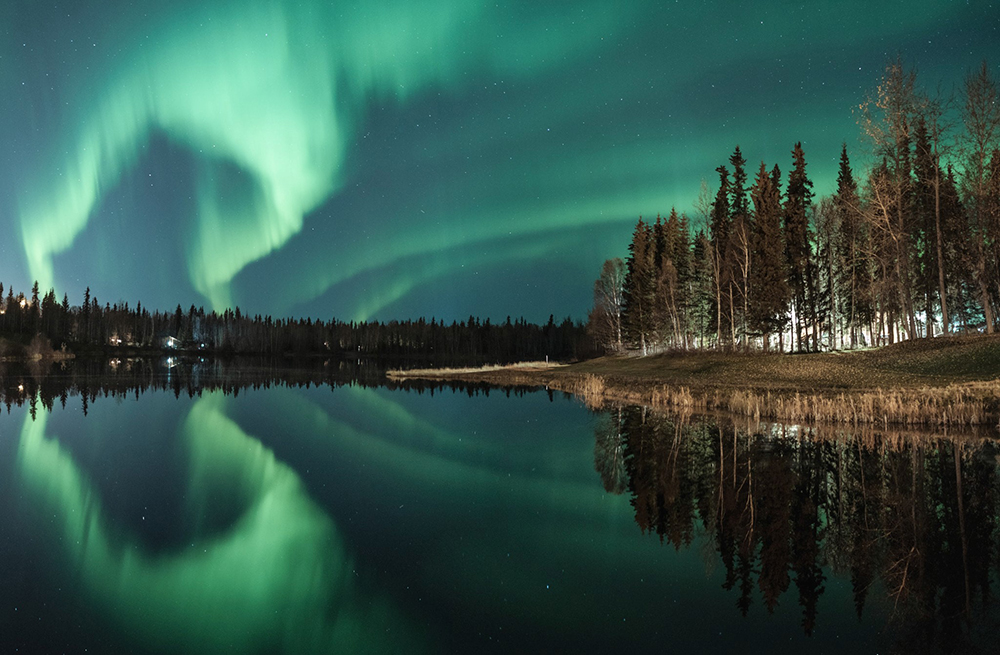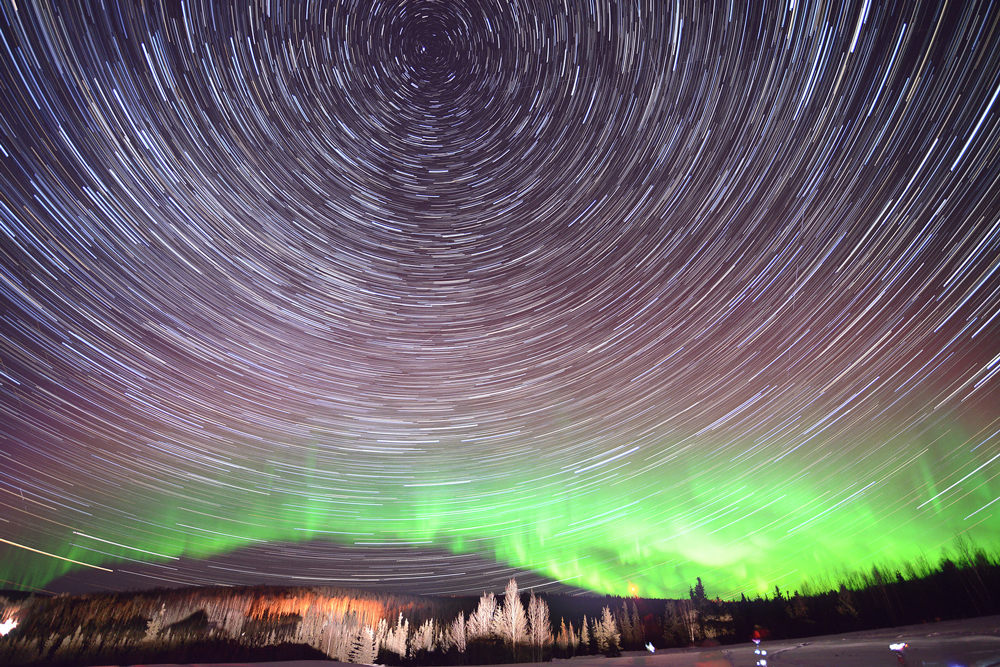Northern Lights myths & tips to make your aurora adventure lit
Share

Aurora Borealis near Fairbanks, Alaska. Photo by Andy Witteman.
The state of Alaska happens to be one of the best places in the world to see the Northern Lights, scientifically known as the Aurora Borealis. And, since we’re the airline with the most flights to Alaska, we know a thing or two about seeing this natural wonder.
“I’ve seen the aurora at least 40 times. My most reliable spot is Ester Dome, just outside of Fairbanks. Drive up to the antennas and adjacent is a large snowfield you can walk on. If you’re visiting Anchorage, I’ve had the best luck seeing the Northern Lights from the end of the runway (at Ted Stevens Anchorage International Airport) near Earthquake Park. In my experience, I’ve found that midnight to 1:30 a.m. is when the lights are most active.” – Kevin, Manager of Market & Competitive Analysis
“I’ve had the best luck seeing the lights in and around Fairbanks compared to anywhere else – it generally has clearer skies. I often monitor the aurora forecast provided by the University of Alaska Fairbanks. My advice is to find conditions where skies are forecasted to be clear and the aurora Kp (strength) forecast is high. If booking a trip far out where you’re unsure about the weather, it’s a great idea to plan to stay at least a few days.” – Garrison, Yield Management Analyst
“My favorite spot to view the lights is from Chena Hot Springs Resort outside Fairbanks. It’s a lovely spot to wait for the aurora while soaking in the hot springs.” – Jacqueline, Manager Revenue Management
Explore Fairbanks:

If you’re visiting Fairbanks, be sure to check out Aurora Pointe, Murphy Dome, Cleary Summit, Chena Lakes Recreation area, or up the Elliott Highway. These offer some of the best views of the lights, just make sure you go at night. If you prefer to watch the Northern Lights indoors, try out a heated “aurorium” cabin, yurt or lodge.
Pro tip: Read how to photograph the Northern Lights
Though the Northern Lights are more vibrant a few miles out of town where it’s darker, you’ll be able to see the Northern Lights in and around Fairbanks too. Many accommodations’ front desks will even offer a wake-up call for guests when the Northern Lights appear.
You can learn more about aurora season (generally Aug. 21 – April 21) on Explore Fairbanks’ website.
Cracking Northern Lights myths:
There are quite a few misconceptions about the Northern Lights, and when and how they appear. Mark Conde, a professor of physics and a geophysicist at the University of Alaska Fairbanks, dispelled some for us below.

1. You can turn the Northern Lights on and off. – MYTH
“There’s no known way for human technology to turn the naturally-occurring aurora on and off. There also aren’t any human facilities that can match the total power of the active aurora – that power can be more than 100 gigawatts, which is a lot. If someone wanted to generate that much power, they would need an entire electricity grid.”
2. The Northern Lights make noise. – TRUE, ish
“There are numerous reports of the aurora producing audible sounds. Science doesn’t have a good explanation for how or why this occurs, nor any really definitive measurements to show that it does. There are enough first-hand human reports that, in my opinion, would be unwise to completely discount any possibility that there is something to this. The types of sounds that people report hearing are hissing or crackling. There are suggestions that sounds like this may be caused by electrical discharges from airborne ice crystals or spruce needles. This doesn’t necessarily mean that the aurora is making noise.
“I personally have heard hissing from radios or intercom systems when the aurora is active. This isn’t auroral sound. Its electrical interference associated with the aurora being turned into sound by the radio or intercom.”
3. The aurora only happens at night. – MYTH
“The aurora happens at all hours of the day. However, you can only see the aurora if it’s dark (unless you have a spacecraft or very special ground-based equipment). A person will never be able to see the aurora from the ground with their unaided eyes during full daylight. However, it’s not uncommon for humans to see the aurora by eye during twilight, which isn’t really night.
Also, if you travel far enough north in the winter, it’s dark during the day and then you’ll be able to see the daytime aurora. Spacecraft and special ground-based instruments tell us that bright aurora do occur in broad daylight. My own graduate study was based on seeing the aurora in the daytime blue sky above Antarctica, so it’s not a nighttime-only phenomenon.”
4. Winter is the only time you can see the Northern Lights. – MYTH
“In high latitude locations like Fairbanks, the sky won’t be dark enough in the summer if you’re observing the aurora by eye from the ground. But during a magnetic storm at solar maximum, the aurora expands a long way toward the equator, even as far south as Texas. At mid-latitudes, such as those in the continental U.S., it will be dark at midnight, even in the summer. So, observers in those locations can and do see the aurora in the summer.”
5. Clear skies cause the aurora to occur. – MYTH
“If you’re watching the aurora from the ground, you won’t be able to see it if it’s cloudy because the aurora occurs above the clouds. It’s easy to take your personal experience of seeing the aurora when the sky is clear. We have instruments that can see auroral light through the clouds. We also have spacecraft viewing them from above. Both techniques show that the aurora occurs regardless of whether the sky below is clear or cloudy.”
You’re now one step closer to your aurora adventure — Head north to Alaska for your chance to chase the lights by booking your flight on alaskaair.com.
Related stories:
